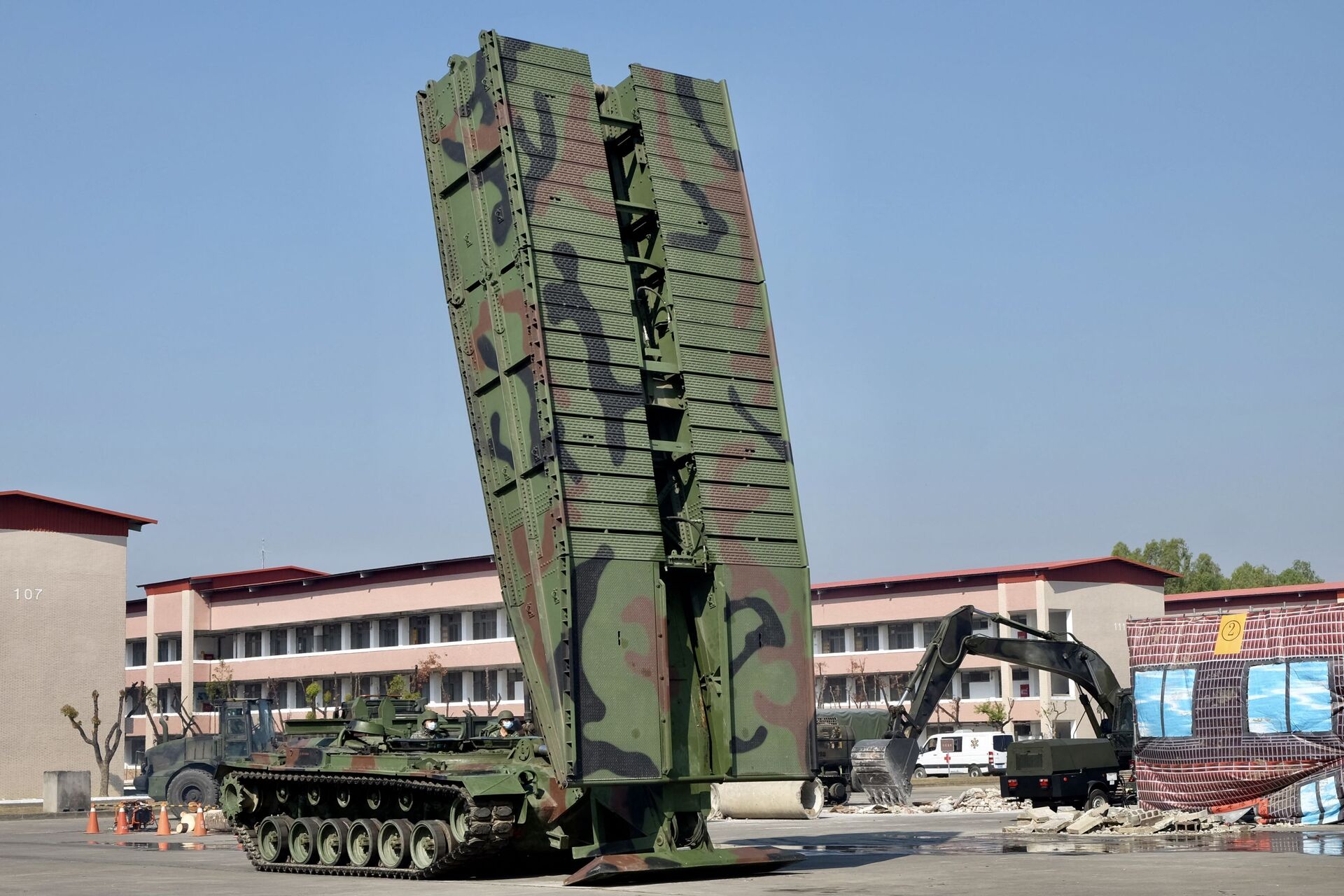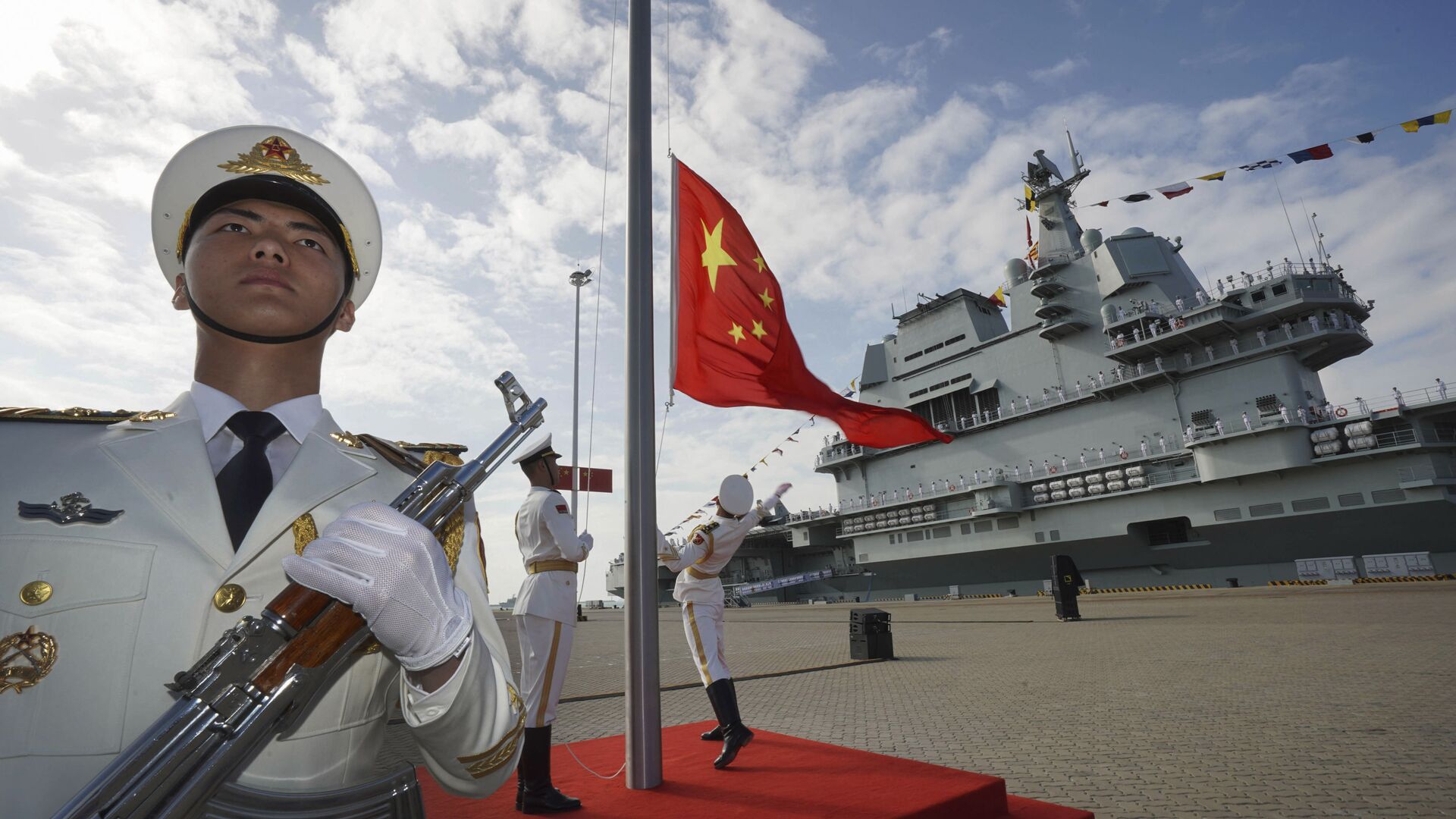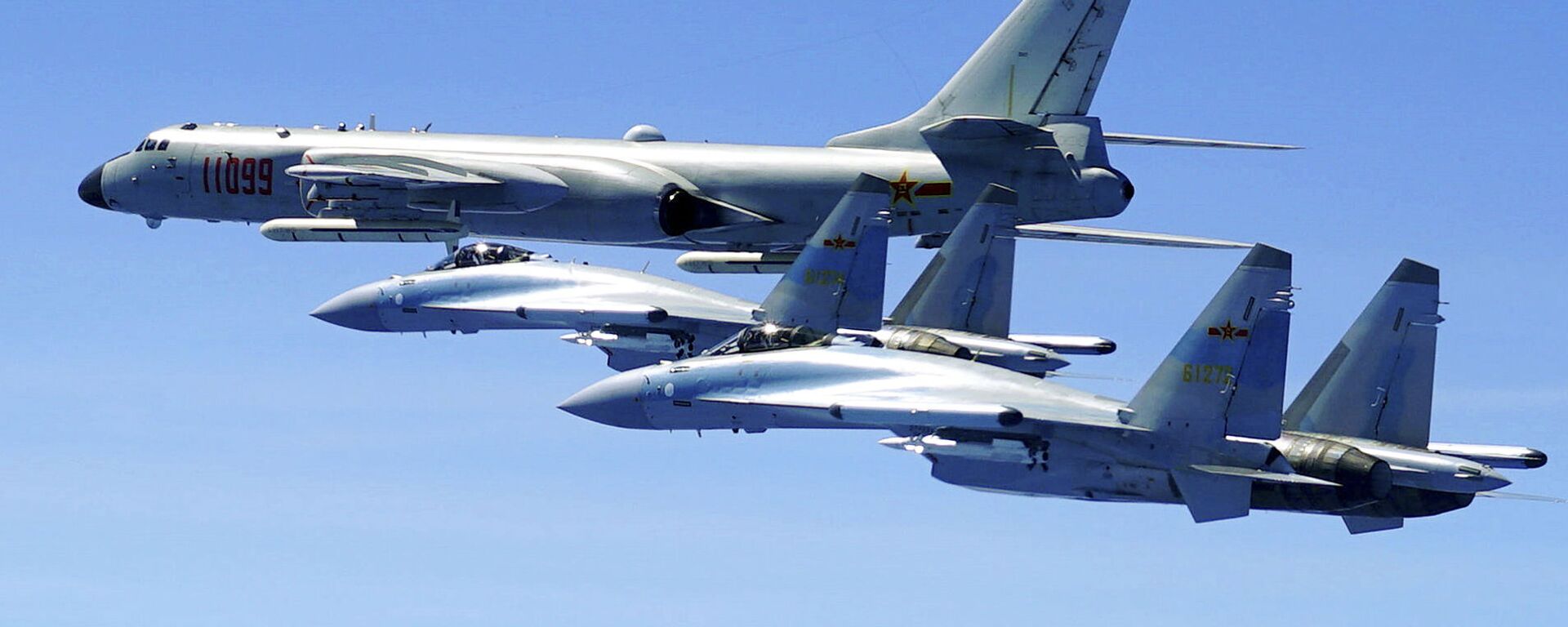The Chinese defence budget for 2021, unveiled at the annual session of the National People’s Congress (NPC) which closed on Thursday, has made plans to reunify with Taiwan even “more obvious”, Tzu Chieh Hung - a Chinese military expert at Taipei-based think-tank the Institute for National Defense and Security Research (INDSR) - told Sputnik.
“The People’s Liberation Army’s (PLA) recent preparations for military reunification with Taiwan have also become more and more obvious, including increasing the frequency of military aircraft entering Taiwan’s ADIZ, the expansion of Fuqing Longtian and the Huian military airport, and various exercises against Taiwan,” Hung said.
The expert was referring to a January incident when eight of China’s nuclear-capable H-6K bombers and four of its J-16 fighter jets entered Taiwan’s Air Identification Defence Zone (ADIZ), a move described as “unusual” by Taipei’s defence ministry. Analysts, on the other hand, saw it as a show of strength by Beijing, aimed at sending out a message to Taiwan - the island territory which Beijing considers to be a renegade province of the People’s Republic - as well as to the US.
At present, China’s defence budget, despite being the second largest in the world, is about a quarter of what the US spends on its military upgrades, salaries and purchases annually.
“Secondly, China is also preparing for a war that might take place because of its plan to reunify with Taiwan,” claimed the Taiwanese expert, as he cited President Xi’s statement in January last year wherein he didn’t rule out the prospect of reunification by force, if necessary.
“As a result, China's defence budget will continue to increase in the next few years to serve these goals,” Hung underlined.
China considers Taiwan as a breakaway province that should be reunified with the mainland one day under the "One Country Two Systems" policy.
Trump’s Taiwan Policy A “Wake-up” Call for China
Hung said that the pace of China’s military development had quickened in recent years because of former US President Donald Trump’s policy towards Taiwan, which was a departure from the actions of previous American administrations aimed at not antagonising Beijing too much.
“It is worth noting that the US Trump administration’s attitude towards China in the past few years was a wake-up call to China. With the deterioration of US-China relations and the strengthening of Taiwan-US relations during the Trump era, China perceives the threat and has accelerated the development of the People’s Liberation Army,” said Hung.
Hung claims that even President Xi’s 2017 address spelling out his vision to modernise the military by 2027 was in response to Trump’s hostile policy as well as the regional security situation, as the US tried to lobby regional powers such as Japan, Australia and India against China.
Tensions between Washington and Beijing over Taiwan further escalated on the day of Joe Biden inauguration, with the island being represented at the ceremony for the first time since the US severed diplomatic ties with the Republic of China (ROC) in 1979, in accordance with its adherence to the “One China” policy.
“These military goals and preparations will not change with the future trend of US-China relations because China has recognised that its foreign relations and the development of the situation are still likely to change in the future, but enhancing the strength of the People’s Liberation Army will be given strong support vis-a-vis the United States, Taiwan or other countries,” Hung says.

Under Trump, the US stepped up its military and diplomatic support for Taiwan, despite repeated protests by Beijing that such backing could upset the regional security balance.
In October last year, the US approved arms sales worth around $1.8 billion to Taiwan, which involved equipping the Taiwanese forces with rocket launchers, sensors and artillery.
The US House of Representatives also passed the Taiwan Assurance Act in 2019, which aimed at supporting Taiwan’s cause on international platforms.
As a parting shot at China, the outgoing Trump administration in January this year removed restrictions on interactions between US and Taiwanese diplomats, another decision that sparked strong criticism of “meddling in internal affairs” by Beijing.





